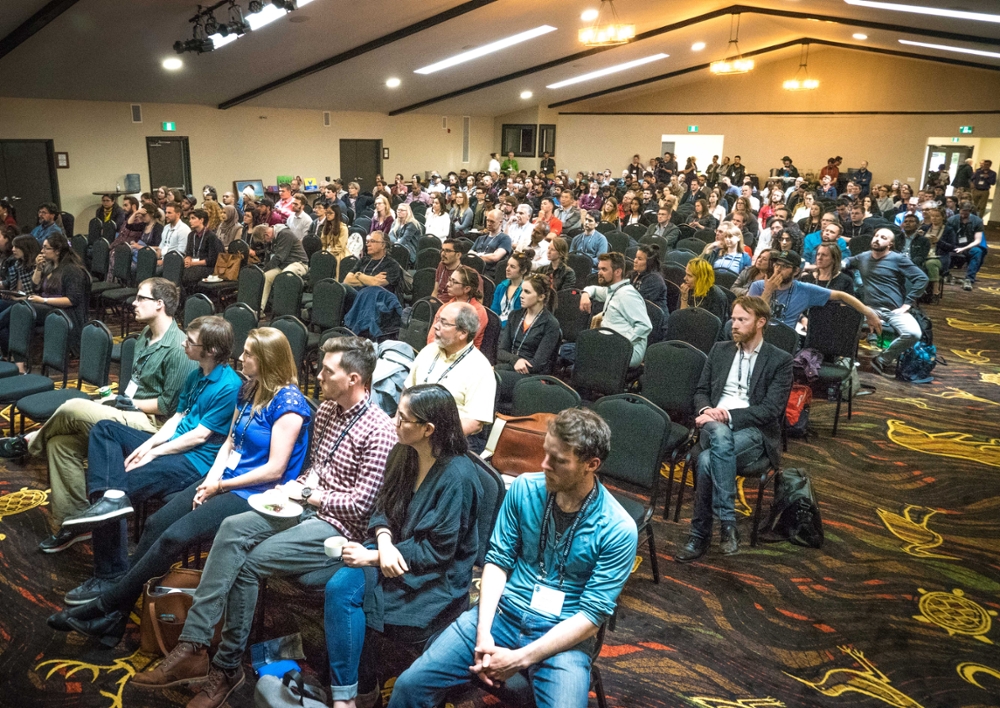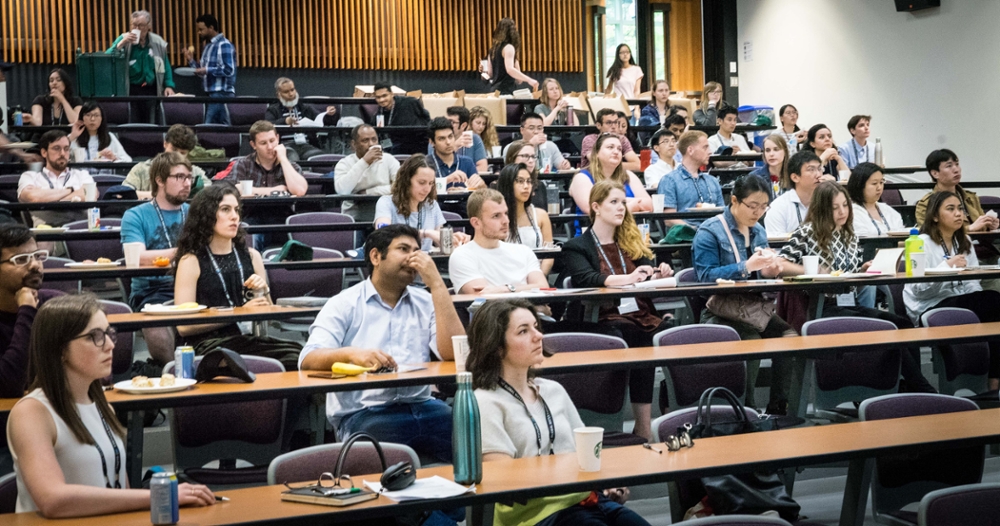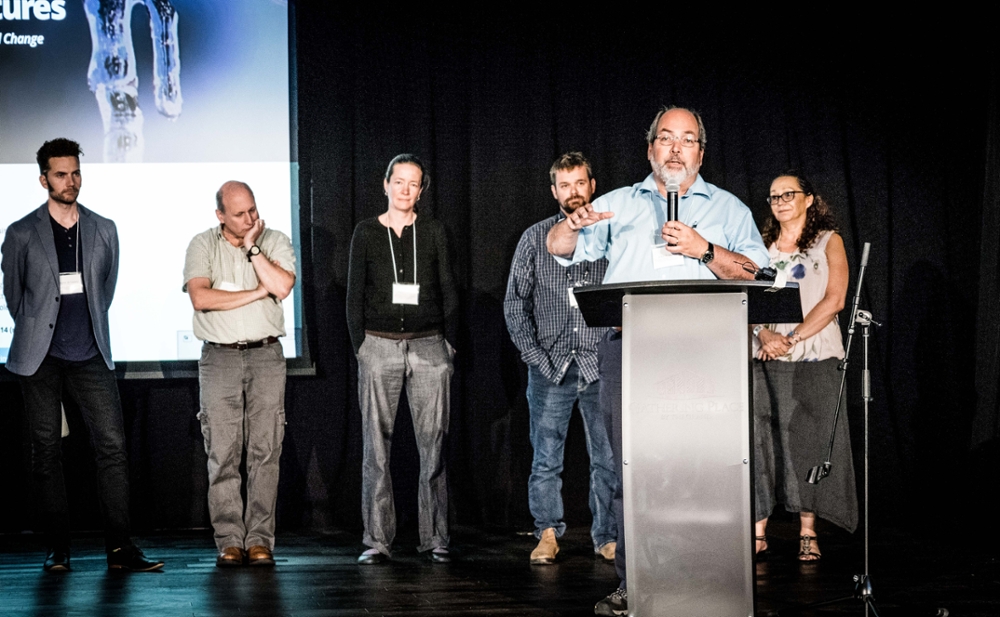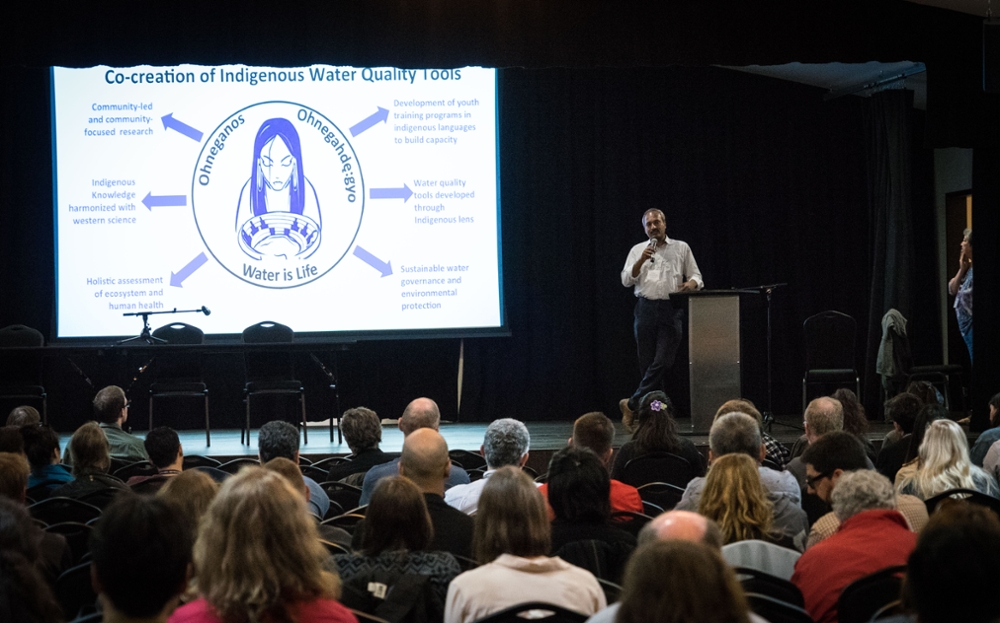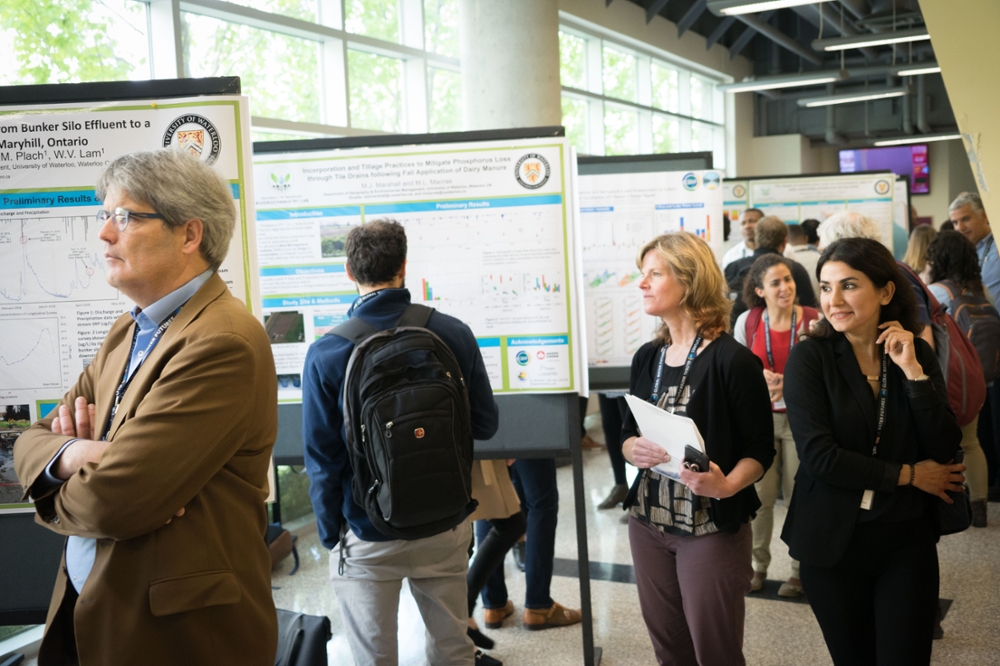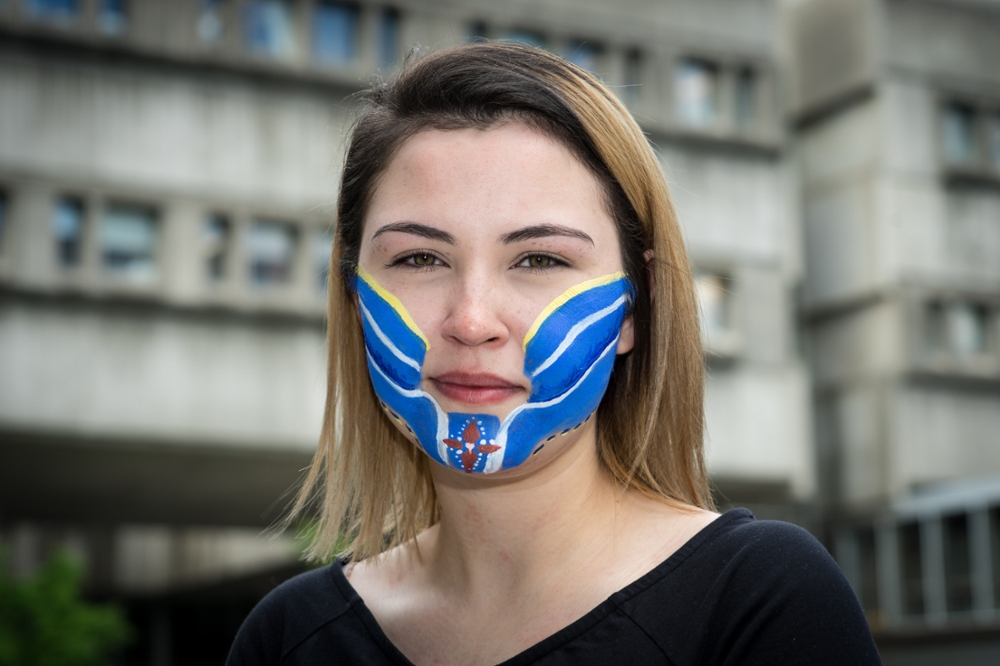Overview
GWF met as a whole for the first time and has brought together a large and comprehensive transdisciplinary group of water researchers and stakeholders in water research who discussed progress in meeting the GWF Grand Challenge. This meeting was remarkable for being exceptionally comprehensive in the subjects represented, for the early and rapid progress shown, and for being hosted and co-organized by a First Nation, on its own territory.
Over 400 people attended from across Canada, and from UN, WCRP and Future Earth. The meeting included 160 presententations by academics, students, researchers, Indigenous knowledge holders, policy makers, managers and communicators as well as a visit to Six Nations of the Grand River where researchers and community members engaged in land-based knowledge exchange activities.
Special attention was paid to progress in:
- international linkages for GWF,
- regional and topical scientific advances in Canada,
- co-creation of knowledge with First Nations
- needs of Young Professionals and
- integration of research needs and advances in understanding and technology on:
- modelling and observations,
- aquatic environment and ecosystems,
- human-water interactions,
- watershed management and disturbance, and
- climate and extreme weather.
GWF would like to express our gratitude to the planning and organizing committee consisting of GWF members and volunteers from McMaster University, Six Nations of the Grand River and University of Saskatchewan. This event would not have been possible without their hard work - thank you!
Agenda
Presentations
Plenaries
Global Water Futures - John Pomeroy
Global Sustainability Processes and a UN Water Decade: 2018-2028 - Vladimir Smakhtin
ECCC's Water Cycle Prediction Program and Global Water Futures - Alain Pietroniro
Plenaries
The Global Energy and Water Exchanges project of the World Climate Research Programme - Jan Polcher
Great Lakes and Water Quality: A Regional Perspective - Nandita Basu & Philippe Van Cappellen
Knowledge Mobilization Workshop - KM Core Team
Session: Modelling and Observations - Part I
The MESH Model: Past, Present and Future - Bruce Davison
Regional modelling with a simple land surface model: the strengths, weaknesses and a novel implementation of the Variable Infiltration Capacity (VIC) model - Shervan Gharari
Status report on the Great Lakes Runoff Inter-comparison Project for Lake Erie (GRIP-E) - Juliane Mai
Integration of a slope-based lateral soil water algorithm into a dynamic vegetation model - Stéfan Sauer
Challenges in modelling Prairie hydrology under future climates - Kevin Shook
High-resolution hydrological forecasting of the June 2013 flood in the Canadian Rockies - Vincent Vionnet
Airborne Measurement of Seasonal Snow in Western Canada - Brian Menounos
GPM-IMERG Snowfall Estimates in Cold Mountainous Regions - Andre Bertoncini
Session: Human-Water Interactions
Source Water Protection Planning - Robert Patrick
Linking Water Governance in Lake Erie to External Economic, Social and Political Drivers - Rob de Loë
Towards co-creation: engaging indigenous youth in monitoring stream health - Patricia Chow-Fraser
How Narratives Influence Water Policy in the Saskatchewan River Basin - Hayley Carlson
The role of practitioners in Decision Support System (DSS) formulation - Zobia Jawed
Analyzing News Media Coverage in Extreme Environmental Events: The Key Role of Media in Human Adaptive behaviors toward water use - Mohammad Ghoreishi
Estimating the Economic Costs of Eutrophication in the Great Lakes Basin - Roy Brouwer
An Evaluation of Current and Future Water Allocation Strategies in the Saskatchewan River Basin - Leila Eamen
Session: Watershed Management and Disturbance
Groundwater Protection - Looking Deeper - Grant Ferguson
Boots on the Ground: Wolf Creek Research Basin - Tyler de Jong
Groundwater Flow and Permafrost Distribution at Wolf Creek, YT - Laura Lyon
Drivers of land cover change after large fire disturbance in boreal forests - Nicola Day
Forest growth dynamics in northwestern North America - Anastasia Sniderhan
Biogeochemical Asynchrony: Ecosystem Drivers of Concentration-Discharge Dynamics Across Temporal Scales - Kim Van Meter
Dominant glacial landforms in the lower Great Lakes region exhibit differences in soil chemistry and potential risk of phosphorus loss - Janina Plach
Controls of Nitrogen to Phosphorus Stoichiometry in a Canadian Prairie Watershed - Jian Liu
Plenaries
Towards a Sustainable Water Future: Shaping the next decade of global water research in the era of Anthropocene - Anik Bhaduri
Northern Canada - Jennifer Baltzer & Heidi Swanson
Mountain Waters: Change, Vulnerability and Opportunity - Sean Carey
Canadian Prairies - Colin Whitfield & Helen Baulch
Environmental Forensics: What is it and what can it do? - John Giesy
Session: Modelling and Observations - Part II
A Toolbox for Comprehensive, Efficient, and Robust Sensitivity and Uncertainty Analysis - Saman Razavi
An Automated Parameter Grouping Strategy for Efficient Sensitivity Analysis of Large-scale Hydrological Models - Razi Sheikholeslami
Model couplings to include river water temperature, overland and instream water-quality and river ice processes in the MESH modelling system - Karl-Erich Lindenschmidt
Pursuing reliable hourly nutrient predictions in cold regions through the coupling of CRHM to an extended version of WINTRA - Diogo Costa
Nitrate fluxes in agricultural catchments: spatio-temporal variations driven by flow pathways and transport mechanisms - Mahyar Shafii
Water resources management modelling for Integrated Water Resources Management within Canada’s large river basins - Andrew Slaughter
Integrated Water Resources Management of the Saskatchewan River Basin using WEAP - Kasra Keshavarz
Session: Aquatic Environment and Ecosystems
Understanding and Rehabilitating Damaged Riverine Ecosystems - Jack Imhof
Approaches to understanding the fate of mercury in aquatic ecosystems - Karen Kidd
The Importance of Better Predicting Short- and Long-Term Water Quality Changes to Ensure Robust Drinking Water Treatment - Peter Huck
Improving estimates of phosphorus loads from tile-drained landscapes using Kriging techniques - Mazda Kompanizare
Longer summers drive multiple cyanobacterial blooms on lake 227 - Megan Larsen
Modeling the response of fish to major infrastructure upgrades in wastewater treatment plants - Mark Servos
Sensor Biofouling: Impact and Solutions - Charles-François de Lannoy
DNA-based biosensors for metal detection - Juewen Liu
Session: Climate and Extremes
The Impacts of Extreme Precipitation Events on the Insurance Industry - Laura Twidle
Probability of compound extreme precipitation events to inform engineering design - Mohamed Ali Ben Alaya
Continental Scale Convection-permitting WRF regional climate simulation over western Canada - Zhenhua Li
Meteorological factors and icing on structures - Julie Thériault
Impact of atmospheric circulation on streamflow in Southern Ontario - Oliver Champagne
Synthesis of carbon fluxes sensitivities to heat and drought impacts in North America forests - Bing Xu
Convective precipitation initiation over the leeside of the Canadian Rockies - Lucia Scaff
MJO and ENSO on Growing Season Precipitation over the Canadian Prairies - Zhenhua Li

